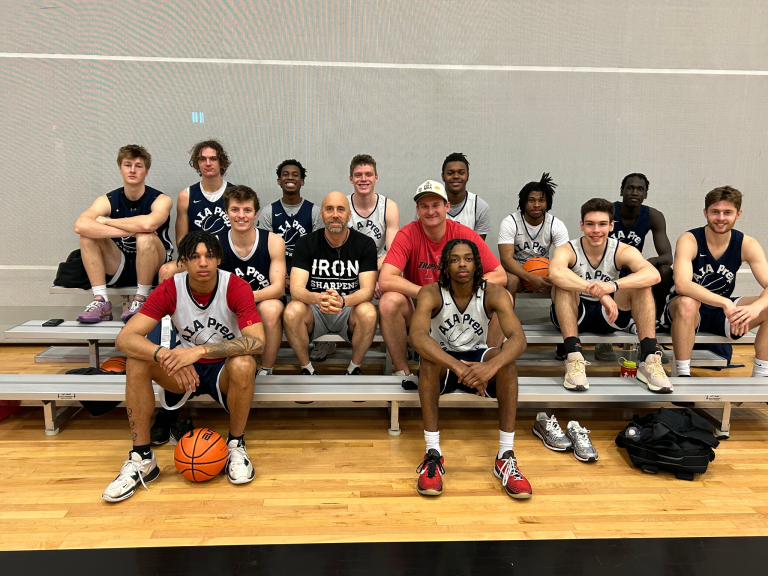Article
4 Values Toward A Healthy Youth Sports Culture
Healthy culture starts when you define your values
John O’Sullivan
never miss a play
Get weekly articles on sport culture, relationships, and identity.
Clubs, park districts and schools across the country are working with organizations such as the Changing the Game Project, the Positive Coaching Alliance, and Proactive Coaching to create values-based programming that focus on winning the race to the right finish line. Here is one youth program that’s getting it right.
In 2015, Nate Baldwin became the Youth Sports Programmer for Appleton, WI, Parks and Recreation. They faced declining numbers across their four major sports—flag football, soccer, baseball/softball, and basketball—just like many other sports organizations across the country.
Baldwin’s said, “The first thing that struck me was how willing a ‘typical’ park and rec sports program was to be the fall-back option in the community. We were willing to be the program families settled for, if their children either weren’t talented enough—or financially fortunate enough—to participate with an elite/travel program. As with many communities, the travel/elite system is big, vocal, and strong in this part of the state.
change youth sport culture
Value Inclusivity
Be intentional about skill development
Value family balance
Promote lifelong enjoyment of sport
Heavily influenced by organizations like Changing the Game Project, Baldwin realized, “My first order of business was to basically stand up for the benefits we provide to the community. Define our values, define our philosophy, and boldly position those qualities as the reason to actively choose our program over the competition.”
What has happened in Appleton since 2015 can serve as a template for programs across the country—it’s been nothing short of amazing.
Their first step was to define who they were and what they stood for by outlining four core values that anyone can choose to embrace in any youth league in the country.
Inclusivity: Regardless of your skill or background, there is a place for you here.
Intentional Skill Development: Accomplished through structured lesson planning, coach training, and frequent feedback during the season to help coaches and players get from point A to point B—from week to week, and from season to season.
Family Balance: Reasonable time commitments that allow kids to be kids—and enjoy family dinners, get their homework done, and enjoy free play—reasonable financial commitments that don’t artificially increase pressure or expectations, and a season length that allows a child to pursue other interests and other sports without guilt.
Promoting Lifelong Enjoyment of Sports: We want the league experience to be so positive, so encouraging, that every child will want to make this activity a part of their life, long-term—regardless of whether they pursue the activity in more competitive leagues in the future or not.
It takes a small group of people to stand up and decide to win the race to the right finish line.
Second, Nate and his team relentlessly shared these values, educated coaches and parents, and held people accountable for upholding them. They said, “We’ve told you how we do things here, and if this is not a good fit for you we understand, perhaps it’s not for you.” When necessary, they helped coaches who were led by other values to move on, replacing them with coaches that would not only verbally embrace the values, but would also live them out.
Since 2015, participation numbers in their four major sports are up a staggering 47%, from 1642 kids to 2419! It turns out that this type of programming satisfied a need many parents were feeling.
“It shows that kids still want to play, and it shows that families still value a positive sports experience, dictated by core values that make sense, match their family values, and promote the overall health, well-being and development of their children,” says Baldwin. “Being an active part of the Changing the Game movement has helped us reach these families with this message, and they have embraced it wholeheartedly with their participation, and their enthusiasm to share it with their friends, family and neighbors.”
The best part, I think, is this last paragraph from Nate’s email to me: “A critical component of our success has been our ability to deliver on the experience we promote. Despite the incredible growth our programs have enjoyed, our on-field conflict and problems are practically non-existent. Parents, coaches, and staff ALL understand the value system, understand what our collective purpose is on the field each week, and are unified and collaborative in their efforts to provide that experience for our kids each week. They are also extremely PROTECTIVE of that mission because they know how important the integrity of that mission is to our program success.”
Your town, your club, your sport can be the next Appleton, WI. It just takes belief in the science of youth sports, a long-term vision, a healthy dose of courage to go from good to great, and relentless commitment to serving the needs, values, and priorities of the kids.
It takes a small group of people to stand up and decide to win the race to the right finish line.
For more on how to promote a healthy youth sports culture, go to Changing the Game Project.
READ THE LATEST
Where sport culture, relationships, character, identity, and faith collide.

